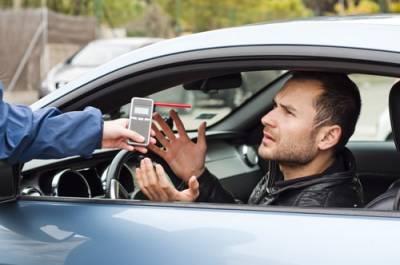What Happens When You Refuse a Breathalyzer Test?
 Drinking and driving is never acceptable under any circumstances and justifiably carries serious consequences, even for first offenders. However, there are ways that a person can make things even worse for themselves when they get caught. Refusing a breathalyzer or other sobriety test is at the top of the list - but at the same time, refusing a breathalyzer is not a crime in Connecticut. Either way, enlisting a Stamford DUI attorney will help you ensure your rights are protected.
Drinking and driving is never acceptable under any circumstances and justifiably carries serious consequences, even for first offenders. However, there are ways that a person can make things even worse for themselves when they get caught. Refusing a breathalyzer or other sobriety test is at the top of the list - but at the same time, refusing a breathalyzer is not a crime in Connecticut. Either way, enlisting a Stamford DUI attorney will help you ensure your rights are protected.
A Danger to Others
If you are pulled over on suspicion of drinking and driving, you will be asked to take at least one sobriety test, with a breathalyzer being one that is commonly used in the field. It is not against the law to refuse a breath test in Connecticut (though it is in many other states), If you refuse, state law allows for your drivers’ license to be immediately suspended, generally for up to six months’ time for a first offense, with the length of time rising with each offense and refusal. If you are under the age of 18 and refuse a breathalyzer, the license suspension will be 18 months for a first offense.
This may seem too harsh, but Connecticut sees DUIs as very serious, posing a significant danger to the average person. Failure to take a breath or other sobriety test is seen as a failure to acknowledge the potential hazards of driving under the influence, and public policy (the idea that the state should further the well-being of its citizens) requires that law enforcement act appropriately. Connecticut, like most other states, has ‘implied consent’ laws, which essentially hold that anyone who drives on Connecticut roads consents to chemical testing if arrested for DUI.
You Can Appeal the Suspension
If your license is suspended upon refusal to take a breath test, you do have the right to appeal, though it will be easier with an attorney on your side. Essentially, you must be able to prove at least one of four different mitigating circumstances to the hearing officer: (1) the officer had no probable cause for the arrest; (2) the arrest never actually took place; (3) that you were a passenger, rather than just a passenger; and (4) you did not actually refuse a chemical test. You may also be able to argue that you were not informed that refusing the breathalyzer would result in stiffer penalties.
If you do not prevail at the hearing, the license suspension goes into effect, as well as your being required to have an ignition interlock device (IID) installed in your vehicle. If you are eventually convicted of driving under the influence, in addition to refusing your breathalyzer, you will face penalties on top of license suspensions and IIDs. Evidence of refusal to take a sobriety test is admissible in criminal court, which means that a jury will be able to infer whatever they want from that refusal.
Contact a Stamford DUI Attorney
On the whole, not refusing a sobriety test is always the better option, but if you already have, you still have options to ensure that you get your day in court. The Stamford criminal attorneys at the Law Offices of Daniel P. Weiner has handled many of these cases and is ready to work with you and try to assist you with your individual matter. Call our office today at 203-348-5846 for a free consultation.
Sources:
https://portal.ct.gov/DMV/Suspension/Suspension/Ignition-Interlock-Device-Program
https://www.cga.ct.gov/current/pub/chap_248.htm#sec_14-227b







